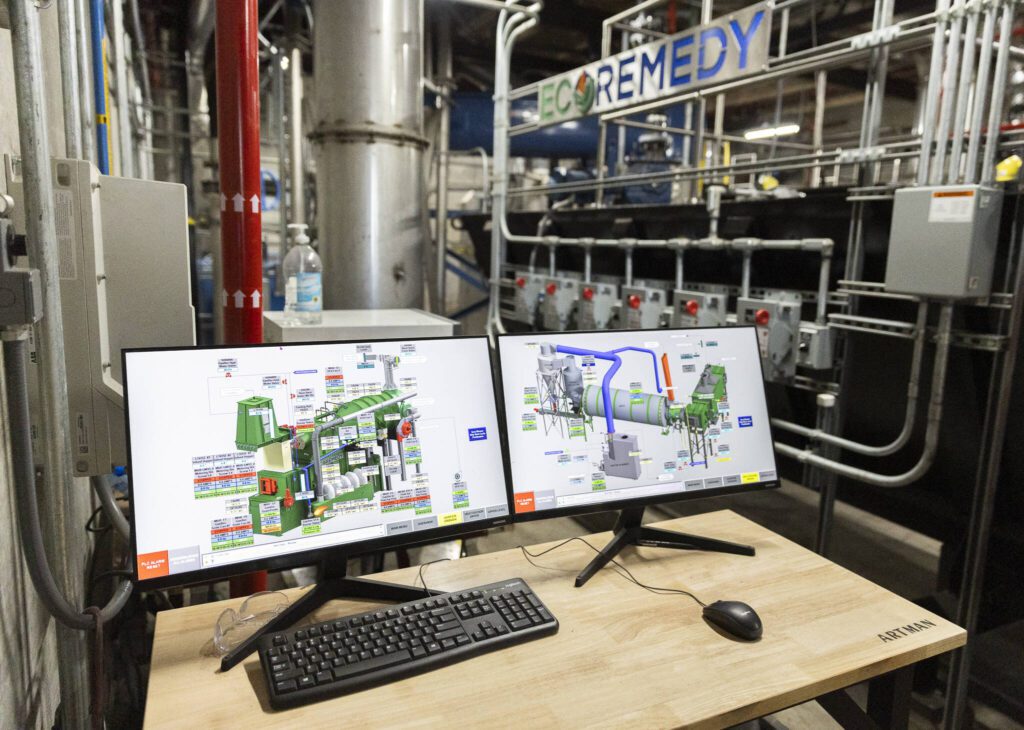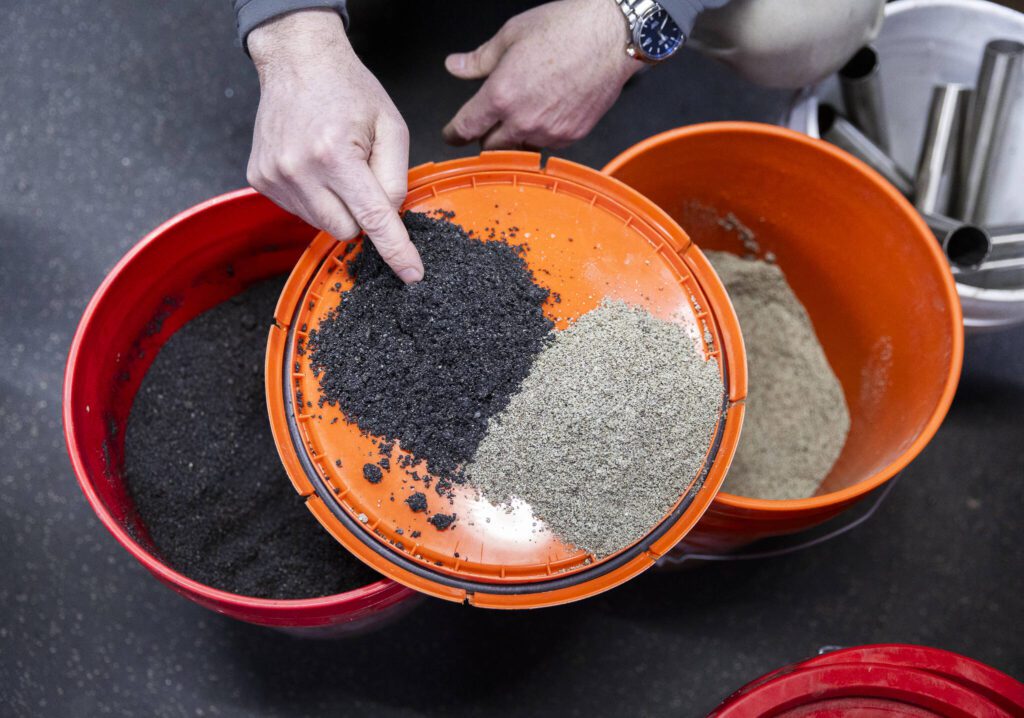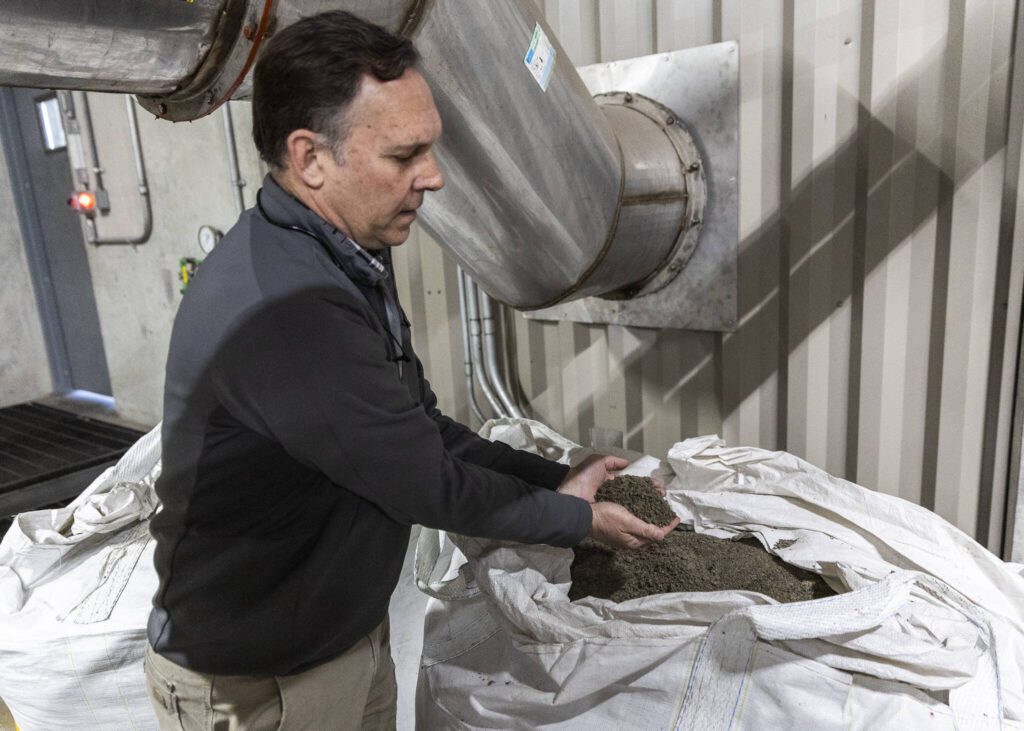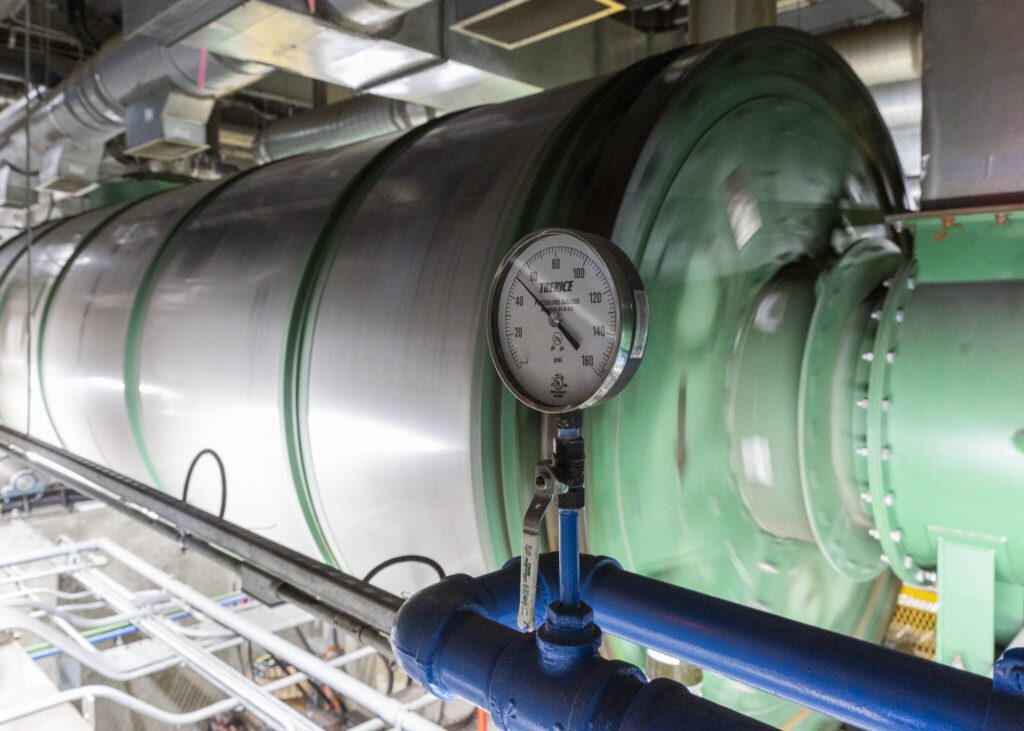EDMONDS — Edmonds is the first city in the country to implement new technology at a wastewater treatment facility that eradicates “forever chemicals,” otherwise known as PFAS. Within the next week, the city will start the new system on a 6-month trial run to collect data and train Public Works staff.
PFAS are found in hundreds of products: carpets, paints and firefighting foams, among others. Historically, manufacturers used PFAS because they resist grease, oil, water and heat. They are aptly called forever chemicals because they take centuries to break down.
The new technology created by Ecoremedy, a Pennsylvania renewable energy firm, uses gasification to convert human waste into usable industry products without using or emitting fossil fuels.
The technology is beneficial because it’s cost- and energy-efficient, but it is also revolutionary.
In February, a Hazen scientific study showed the process destroys PFAS chemicals in biosolids, offering solutions for industries scrambling to meet new regulations and public health concerns about the consequences of the prevalent and harmful chemicals.
For over 30 years, the city used diesel to burn biosolids into ash. The process released carbon dioxide into the air, and the resulting ash waste was trucked to landfills, interim Edmonds Public Works Director Phil Williams said.
The old incinerator was not meeting environmental regulations. Instead of updating the infrastructure, the city decided to look for a new system in 2017.
Edmonds decided on Ecoremedy’s technology.
Using its patented process, Fluid Lift Gasification, the company bakes biosolids at high temperatures in an oxygen-lean environment, making the waste release gas that is then combusted in the chamber.
The process greatly reduces the mass and carbon in the waste without producing or using fossil fuels. The result is a system that converts human waste into usable agricultural and industrial products by utilizing energy already present in biosolids.
“Edmonds is the role model for the future,” Ecoremedy President Dave Mooney said on Thursday. “They have taken on the responsibility to demonstrate to everybody that this is an affordable, sustainable process that can be done within the city’s resources.”
How does the plant and gasification work?
When wastewater enters the city’s treatment facility, it’s sent to a tank where larger solids and debris settle to the bottom.
The water goes to a secondary tank where oxygen is added the mix and bacteria and other microscopic organisms feed on the biosolids, breaking down the waste.
Then a machine runs the waste through a press to remove excess water.
At this point, biosolids would have previously been incinerated. Now, the processed waste goes into Ecoremedy’s system.
The first Ecoremedy machine bakes the biosolids at 800 degrees Fahrenheit, getting even more of the water out.
The dried biosolids are sent to the gasifier, which heats the solids to 1600-1800 degrees with little oxygen.
Compounds in the waste evaporate and become syngas — a mixture of mostly hydrogen and carbon monoxide.
Syngas is an alternative to natural gas. But, instead of needing to source natural gas, which is a fossil fuel, the system can just use the product, biosolids, to fuel the process.
“The biosolids themselves produce the energy that’s used to reduce them,” Williams said, explaining one of the big reasons why the new technology is so much more energy efficient than an incinerator.
Then, oxygen-rich air is blown into the chamber filled with syngas, triggering combustion and rocketing temperatures over 2000 degrees.
The temperatures are so hot, they break the typically unbreakable carbon and fluorine bond in PFAS chemicals.
Because there is so much hydrogen already present in the chamber, the fluorine molecules reattach to hydrogen instead of carbon.
“You end up with hydrogen fluoride, as opposed to a PFAS compound,” Mooney said, adding that the hydrogen fluoride can be easily scrubbed or removed.
Depending on what temperature Ecoremedy runs the gasifier at, two final products are possible.
At higher temperatures, a sand-like material is made, which Ecoremedy has trademarked as FLGSand. Looking at buckets of the product, it’s hard to envision that the material came from human waste.
The sand is sterile and can be used for a variety of industrial uses, such as an additive to cement or for sanding roads in wintery conditions.
At lower temperatures, the gasifier produces a carbon-rich biochar, trademarked as Flexchar.
“Carbon is the building block for life,” Williams said. “This has soil amendment characteristics — soil nutrification. In places like Arizona, where it’s very dry, it has wonderful water retention and holding properties.”
But most importantly, neither products have PFAS in it.
Why do PFAS matter?
Over 40% of the 6 million dry metric tons of biosolids produced annually in the country are used as fertilizer, according to a 2023 study in Environmental Health.
In 2024, the global market for biosolids was estimated at $9.1 billion and is projected to reach $12 billion by 2030, according to a 2025 strategic business report done by Research and Markets.
But as more research comes out about PFAS, concerns have grown about the consequences of the practice.
In January, the Environmental Protection Agency published a draft report on the health risks of PFAS in biosolids. The report states that certain PFAS from biosolids used in land application can cause health issues at levels as low as 1 parts per billion.
While the report is only at the draft stage and there are conditions to its findings, research continues to build a hazardous picture of what PFAS does to human health.
“Both the federal and state governments are examining data, and forcing people to collect more data so they can do a better job of analyzing and finding out how [PFAS] needs to be regulated,” Williams said.
Edmonds is gearing up to run the new gasification system for the next six months. During that time, Ecoremedy will collect data and train city Public Works staff how to run the new infrastructure.
While the study that came out in February about Ecoremedy’s gasifier showed the system got rid of all PFAS in the solid products, small amounts of PFAS were still emitted into the air through the process.
Ecoremedy’s system has over 400 sensors, allowing engineers to monitor and collect large amounts of data. The company is hoping to fine-tune it to get rid of PFAS in the air.
“We were the very first test of its kind here in the country,” Mooney said. “We set the baseline.”
Eliza Aronson: 425-339-3434; eliza.aronson@heraldnet.com; X: @ElizaAronson.
Eliza’s stories are supported by the Herald’s Environmental and Climate Reporting Fund.
Talk to us
> Give us your news tips.
> Send us a letter to the editor.
> More Herald contact information.
































